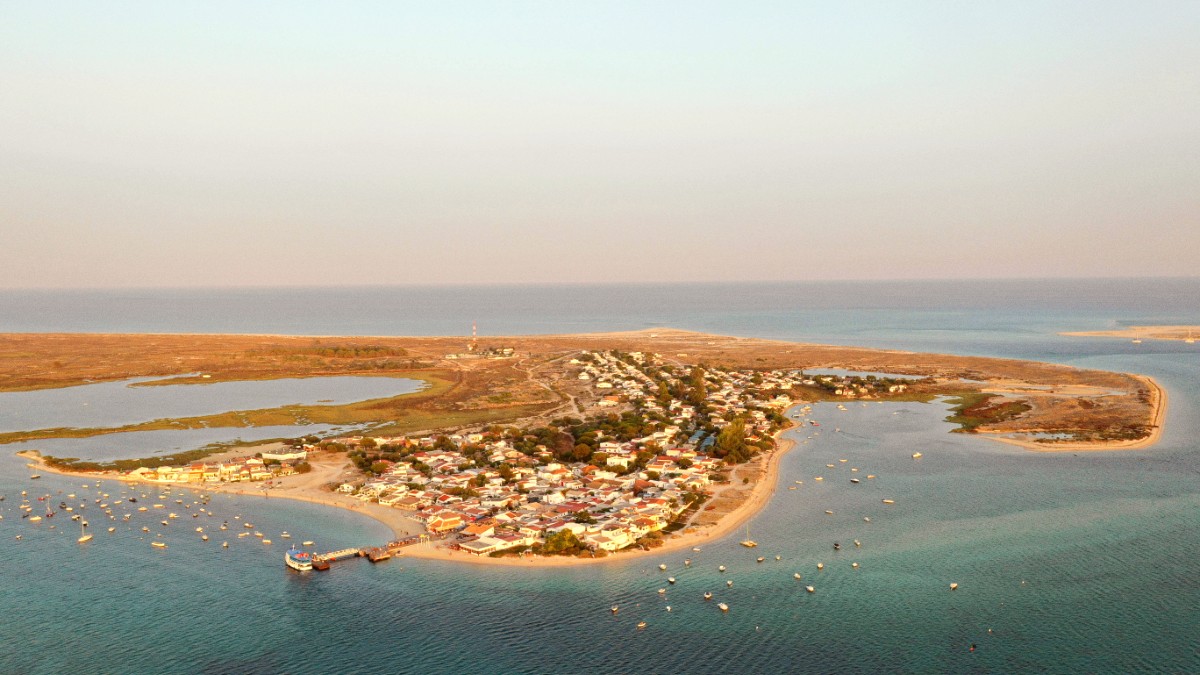
Portugal
Olhão's fishing town identity shapes its culinary landscape. The daily catch from the Atlantic and Ria Formosa forms the foundation of its gastronomy. Moorish presence subtly colors some spices and cooking methods. Olhão’s food is honest, fresh, and unpretentious.
Fresh seafood (fish, octopus, clams, prawns), olive oil, garlic, coriander, and parsley are core to the cuisine. Fresh tomatoes, peppers, and onions are a backbone for many dishes, with citrus adding balance to desserts.
Algarve cuisine differs from northern or central Portugal. It emphasizes fresh seafood due to its coastal location.
A distinct flavor profile emerges from history and proximity to North Africa.
The Cataplana is a signature cooking vessel and dish of the Algarve, rarely seen elsewhere in Portugal.
A rich seafood stew cooked and served in a hinged copper pot. A variety of shellfish, fish, tomatoes, onions, peppers, and herbs steam together.
Found at most traditional seafood restaurants.
Flavorful seafood rice, a wetter version of paella packed with an assortment of seafood. A hearty and satisfying meal.
Widely available in seafood establishments.
Grilled sardines, a summer staple. Simply grilled over charcoal, served with boiled potatoes, salad, and bread.
Look for churrasqueiras (grill houses) or restaurants with outdoor grills.
World-famous Portuguese custard tart with flaky pastry.
Traditional Algarve sweet with egg threads and almond. Folar de Olhão is a specific sweet Easter bread.
More refined experiences, often in larger hotels like Real Marina Hotel & Spa, or dedicated establishments.
Numerous options along the waterfront and town center. A balance of quality, ambiance, and price.
Value-for-money options. Olhão is not a traditional street food hub, but some quick bites are available.
The heart of the town's food scene. Includes the Mercado do Peixe (Fish Market) and Mercado da Fruta e Legumes (Fruit and Vegetable Market).
Cafes and restaurants surrounding the markets serve dishes from fresh local ingredients.
Limited compared to larger Portuguese cities. The focus is on Portuguese and seafood traditions.
A few Italian or Asian eateries might be found, but local fare dominates.
Becoming more common, especially in tourist areas. Vegan options are harder but possible with careful ordering (specify "sem carne," "sem peixe").
Awareness is growing but not universal. Inquire directly about ingredients. Grilled fish/meat, plain rice, and salads are naturally gluten-free.
Extremely limited options. Self-catering from markets or supermarkets is the most viable strategy.
Use apps like HappyCow or carry a Translation card in Portuguese.
Olhão's famous annual Seafood Festival in August. A major event with fresh seafood and live music.
A must for seafood lovers.
Local festivals throughout the Algarve celebrate specific products.
Sweet Potato Festival in Aljezur (autumn).
Take a ferry to one of the barrier islands (Armona, Culatra, Farol).
Eating on the islands marks a memorable part of the Olhão visit.
Options are more common in tourist-focused areas. Vegan choices are more challenging as many traditional dishes use meat or fish.
Awareness of gluten-free ("sem glúten") and other common allergens is increasing but not universal.
Dedicated Halal and Kosher eateries are extremely limited due to a small community.
Prioritize fresh produce and seafood directly from Mercados de Olhão.
This supports local fishermen and farmers directly.
Olhão's focus on Portuguese and seafood traditions is a cultural experience.
Taste authentic dishes like Cataplana and Arroz de Marisco.
The daily catch from the Atlantic and Ria Formosa forms the cornerstone of local gastronomy.
Garlic, coriander, and parsley brighten flavors in many seafood dishes, stews, and soups.
Fresh, ripe tomatoes, peppers, and onions are a common base for sauces, stews, and salads.
Olhão's culinary identity truly reflects the soul of this Portuguese fishing town.